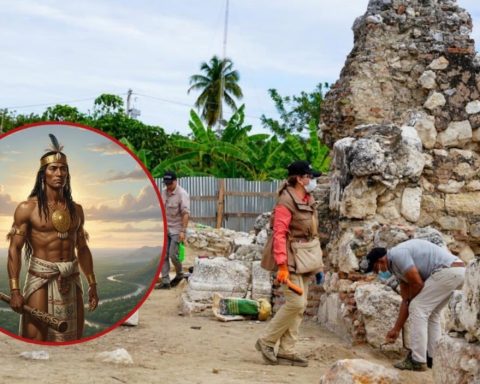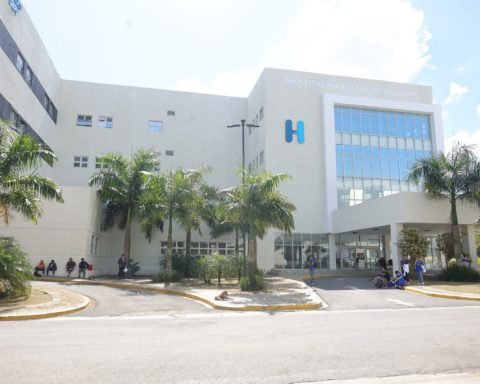Sometimes the Bank of the Republic seems like a somewhat distant entity for certain sectors of the population. Perhaps the complexity of the issues in your charge, or the formality and solemnity that characterize it, contribute to this perception.
(Read here: In four years, spending on voluntary health plans has increased 68%)
However, the Bank works every day to provide solutions to the changing daily needs of the different actors in the economy.
A clear example of this is the work carried out to develop an Interoperated Low Value Immediate Payment System (Bre-B).
an ecosystem where users can make digital payments in real time, at any time (24/7/365), in a secure, simple and standardized way, and from any account or electronic wallet with total interoperability. The decision to move forward with Bre-B is based on the intention of providing a public good with positive externalities that would be difficult to offer by the private sector.
(See here: Economy in Colombia is growing by inertia and without a clear catalyst)
With this decision, the Bank joins the global trend of immediate low-value payments. Many countries already have systems of these characteristics, which is consistent with the decline in the use of physical payment instruments and the increase in digital ones.
One of the most cited cases is that of Brazil and its PIX system, which in a short time managed to transform the functioning of payments throughout the country. Today PIX is the most used means of payment in Brazil, even above cash and cards.
In contrast, although in Colombia there has also been progress in terms of digital payments, cash continues to be the preferred means of payment.
The high use of cash is costly as it makes it difficult for authorities to monitor illicit activities and audit accounting. Furthermore, the production of banknotes and coins, as well as their disposal throughout the country, constitutes a significant expense for the Bank. Greater adoption of digital payments would not only reduce these costs, but would result in more banking and inclusion of the population.
The process led by the Bank began with the installation of the Payments Forum, a discussion forum created to build, together with the different public and private actors in the sector, a design proposal for the new ecosystem.
(Follow here: Food prices rose in September)
This space sought to recognize the advances already made by the industry and, based on what was built, design a proposal that would complement the current system and solve the prevailing frictions. The diagnosis carried out shows an increase in the use of electronic wallets and QR codes. However, it also shows important limitations, many of which originate from the fact that existing transactional schemes have developed under closed models where only users belonging to the same entity can participate.
This low interoperability implies inefficiencies that prevent greater adoption and use by the population that encounters difficulty when making transactions with users who do not use the same payment provider. Proof of this is that people and businesses tend to open multiple accounts in various wallets or have QR codes from various entities to ensure access to the immediate payments they require in their daily lives.
Although the industry has begun to show interest in achieving interoperability in its systems, multiple barriers still remain for this to materialize. And, while this happens, inefficiencies remain both for users who have to “make ropes” to make their payments, as well as for the system to have multiple platforms without necessarily achieving the scale required to recover their investments in infrastructure and technology. Based on this diagnosis, and through dialogue with the different participants in the Payments Forum, the Bre-B proposal was reached.
Credit cards.
iStock
The adopted design seeks to guarantee full interoperability and universal access, so that it is possible to make digital payments in real time, between participants of any wallet or payment service, safely and at a very low cost.
It is also expected to promote the development of different use cases, starting with those between people and from people to businesses, but seeking to extend the service to payments between businesses and public entities. Furthermore, the system is expected to promote continuous innovation in the sector, Therefore, the possibility of adding functionalities in the future is left open.
The agreed design contemplates that the Bank provides a technological solution that consists of three components, namely: the centralized directory, the settlement module and an immediate payments chamber; as well as a new regulatory framework for interoperability within the low-value payments ecosystem.
The leadership assumed by the Bank to design and implement Bre-B gives continuity to a commitment that the entity has had with the operation of a modern and innovative payment system that meets the needs of economic actors and promotes the growth and deepening of financial markets.
Bre-B will bring great benefits to the Colombian economy by allowing efficient, secure, interoperable and low-cost payment operations, in real time and between different types of users from banking and non-banking entities. This new ecosystem will facilitate financial inclusion and foster greater competition in the industry, in turn promoting innovation and scalability of use cases. The system will also have the potential to contribute to the formalization of the economy by reducing the use of cash, resulting in an opportunity to obtain information that allows designing better public policies and increasing the productivity of different actors.
Bibiana Taboada Arango and Mauricio Villamizar Villegas
















